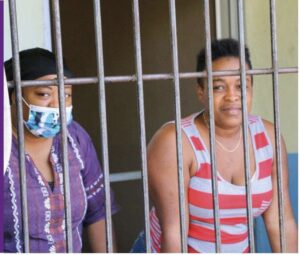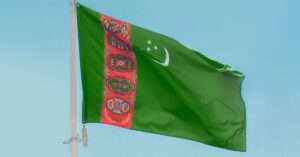The following is based on a communication written by the UN Special Rapporteur on Human Rights Defenders and other UN experts to the Government of the Russian Federation on 11 February 2022. The communication remained confidential for 60 days before being made public. I thank the Government for its response on 7 April 2022 and look forward to receiving the translation.
This is a shorter version of the original communication.
BACKGROUND
Topic: alleged designation of the human rights project OVD-Info as a “foreign agent public association”, as well as the blocking of its website and the impending blocking of its social media pages based on a court decision allegedly adopted following violations of the right to a fair trial.
OVD-Info is a Russian human rights media project which monitors, researches, and publicises violations of the right to freedom of assembly and other civil and political rights in Russia and offers legal assistance to victims. Mr. Grigory Okhotin is a human rights defender and a co-founder and director of OVD-Info.
ALLEGATIONS
OVD-Info’s foreign agent designation
The Federal Law No. 481-FZ dated 30 December 2020 (“Foreign Agent Public Associations Law”) authorised the Ministry of Justice to designate as “foreign agents” Russian associations receiving foreign funding and participating in political activity without being registered as legal entities. On 29 September 2021, the Ministry of Justice designated OVD-Info as a “foreign agent public association”. The element of foreign funding was reportedly not proved in the designation process.
The “political activity” element reportedly consisted of publishing online the following: information on alleged human rights violations, reports to the Council of Europe on freedom of expression and assembly in Russia, guidelines on human rights defence and appeal templates, and information on legal assistance provided by OVD-Info in Russian courts and the European Court of Human Rights. On 11 November 2021, the Zamoskvoretsky District Court of Moscow dismissed OVD-Info’s appeal of the designation. On 18 December 2021, OVD-Info filed a further appeal with the Moscow City Court. The hearing is scheduled for 17 March 2022.
Blocking of website and social media pages
OVD-Info’s website and social media pages contain information about the alleged human rights violations, online tools allowing people to understand their rights, information on receiving human rights assistance and human rights petitions. Cumulatively, they have over 100 million annual views and are the source of information for over 75,000 media publications annually.
On 15 December 2021, the Lukhovistkiy Town Prosecutor filed an administrative lawsuit with the Lukhovitskiy District Court of the Moscow Region, requesting to recognise the information on OVD-Info’s website and social media pages as “prohibited for dissemination in Russia”. On 20 December 2021, the Lukhovitskiy District Court granted the prosecutor’s request.
According to the court decision, publicly available on their website with extensive redactions, the court considered the following examples of publications:
– an interview with a Hizb ut-Tahrir (banned as a terrorist organisation in Russia) member about torture;
– an article about the persecution of Jehovah’s Witnesses (banned as an extremist organisation in Russia);
– an article about the alleged freedom of assembly violations at an unauthorised protest;
– an article about the alleged political persecution of persons described in the court decision as “Ukrainian terrorists or persons who have prepared and/or committed acts of sabotage and terrorism on the territory of the Russian Federation in the interests of Ukraine”; and
– an article on law enforcement practice on the public justification of terrorism.
While the court did not recognise any of the above as prohibited information, it held that OVD-Info’s entire website and social media pages (the list of which is redacted from the decision) contained “information aimed at justifying the activities of extremist and terrorist associations, materials justifying the actions of participants in such organisations, as well as information that forms motivation and readiness in the internet users to participate in public events held in violation of the established order.”
OVD-Info’s contact details were publicly available on its website and social media pages. However, according to the court decision, the defendants were “not identified”. As a result, OVD-Info was not informed of the trial nor invited to participate, unlike the Federal Service for Supervision of Communications, Information Technology and Mass Media (Roskomnadzor), a government body responsible for the blocking of websites. Moreover, OVD-Info was reportedly not served a copy of the decision and learned about it on 25 December 2021, when its website was blocked by Roskomnadzor. OVD-Info’s website remains blocked in Russia. Roskomnadzor reportedly also ordered social media companies to block OVD- Info’s pages.
On 30 December 2021, Mr. Grigory Okhotin appealed the court decision as the domain owner and filed a motion to receive a copy of the court decision and the case materials. However, the court will reportedly not accept the appeal, and the court decision has not been provided to him or to OVD-Info.
CONCERNS
In the communication we expressed serious concern at the designation of human rights project OVD-Info as a “foreign agent public association”, which appears to be in retaliation of their exercise of the freedom of expression and of association, as well as of legitimate human rights work. We are also concerned about the negative impact that the designation of a human rights organisation may have on the civic space in Russia, and the right of civil society actors to freely and peacefully conduct their human rights activities.
We also express serious concerns about the terrorism-related crimes allegedly attributed to the human rights project OVD-Info by the administrative authority. We remind the Russian Government that consistent with the Rabat Plan of Action on the prohibition of advocacy of national, racial or religious hatred that constitutes incitement to discrimination, hostility or violence, the threshold for these inchoate crimes requires the reasonable probability that the expression in question would succeed in inciting a terrorist act, thus establishing a degree of causal link or actual risk of the proscribed result occurring (A/HRC/22/17/Add.4; A/HRC/16/51). Such offences must be strictly circumscribed in both their wording, to comply with the principle of legal certainty, and their application, to comply with the principles of proportionality and necessity, so as to not unduly restrict the rights to freedom of expression and religion (A/HRC/40/52).
We are also concerned that the so-called OVD-Info company was not informed of the proceedings against it and could not take part in the trial. In this regard, we wish to remind your Excellency’s Government that in a previous communication ( OL DZA 12/2021) we have recognised that the right of individuals and entities to an effective remedy is severely limited by the absence of individual
notification.
We are also concerned about the blocking of its website and impending blocking of its social media pages, and the fact that the blockings are based on a court decision allegedly adopted without due respect of the right to a fair trial. Furthermore, as most of OVD-Info’s human rights work is reportedly carried out online, we are concerned that website and social media blockings may be aimed at a shutdown of its work. We recall your Excellency’s Government that electronic modes of expression are a critical means for civil society to exercise their freedom of opinion and expression. Restricting such platforms – blocking, filtering or removing content – can disproportionately affect civil society, human rights defenders and others.
Enjoyment of the rights to privacy and to freedom of expression are closely interrelated. Undue interference with the right to privacy limits the free development and exchange of ideas, and can have a chilling effect on freedom of expression (A/HRC/40/52).



